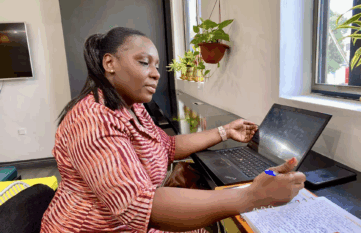About openIMIS
In 2023, the World Bank, the German Federal Ministry for Economic Cooperation and Development (BMZ), and the Swiss Agency for Development and Cooperation (SDC) have joined forces to develop the open source software package openIMIS to improve the administration of the financing of social and health services. The openIMIS digital public good can manage a wide range of systems, from health insurance and workers’ compensation to cash transfers and economic integration programmes. This can improve access to universal health care and universal social protection.
openIMIS in Cameroon
With the aim of achieving universal health coverage (UHC), the government of Cameroon has adopted openIMIS as a digital solution for integrated data management in January 2023. Coordinated by various stakeholders, openIMIS has been implemented since 2013 for several separate health programmes to provide free or discounted access to services for pregnant women and their newborns, children under the age of five, and people diagnosed with HIV, tuberculosis and kidney disease. The fact that these health programmes, which originally operated separately, are built on the same technology – openIMIS – led the government to the idea of integrating all these health programmes into a single universal health programme in 2023.
openIMIS is interoperable, meaning that it can easily enable the secure and transparent exchange of data between different software applications. As a result, previously separate administrative processes – from registering beneficiaries to billing for treatments and medicines – can be systematically combined. Merging the various healthcare programmes and systems into one digital platform not only increases their efficiency, transparency and control, but also makes it easier for people in need to access health care services.
UHC presents us with an important opportunity to invest in the digitalisation of Cameroon’s health information and management systems because you cannot achieve UHC without this.
Emmanuel Batoum, Head of the IT department at Cameroon’s Ministry of Health
The easy technical integration of openIMIS-managed programmes in Cameroon has accelerated the efficient devotailing of data management and data exchange. Between software applications from billing to payment for services – everything is under one universal health care programme. Standardised data also facilitates evidence-based decision-making and provides a clearer picture of developments in the health sector.

More than just software
Behind openIMIS is an international community of developers, implementers and development partners who are continuously working to improve and extend the platform. This global open source community not only enables learning, innovation and scaling, but also contributes to greater sustainability of digital public goods. Maintenance and further development is spread across many shoulders and members can easily integrate necessary adjustments from field tests. This also means that there are no additional costs.
As an early adopter of the software, Cameroon has both benefited from being part of the openIMIS community and contributed significantly to it. Maxime Ngoe is Director General of the Cameroonian IT service provider Y-Note. His company was supported by the openIMIS community during its implementation in Cameroon. Now Maxime Ngoe is doing the same for openIMIS newcomers in other countries, sharing his experience and knowledge:
If I compare openIMIS with other open source products, openIMIS has a stronger community that is inclusive, open-minded and welcoming. This is a bit unique among open source initiatives.
Maxime Ngoe, Director General of the Cameroonian IT service provider Y-Note
Digital health as a long-term vision
The Cameroonian team implementing openIMIS on the ground combined the agile ‘what can we do today?’ approach with a longer-term vision for advancing digital health services in the country. Ensuring the secure and smooth exchange of data between the various existing databases and administrative systems was critical. To this end Josselin Guillebert, Director of the Cameroonian-German Health Programme:
Even though we were under huge time pressure, we made sure to do some important things right from the start that would support the longer-term development of an interoperable system-wide architecture for UHC.
end Josselin Guillebert, Director of the Cameroonian-German Health Programme



